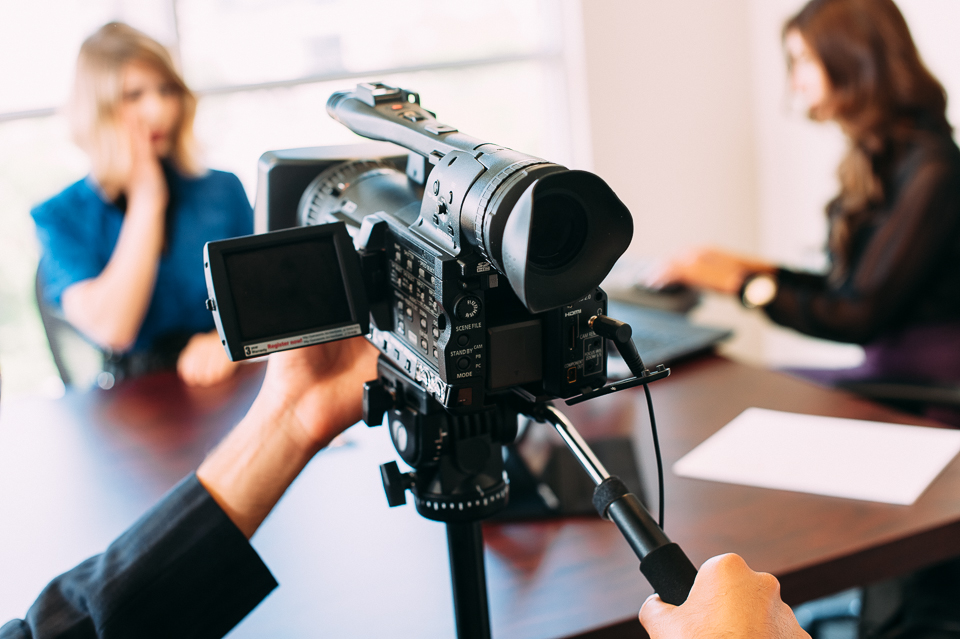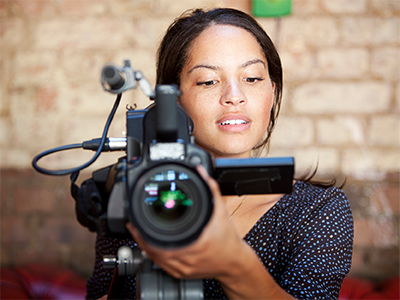Customized Legal Videography for Your Legal Needs.
Customized Legal Videography for Your Legal Needs.
Blog Article
The Function of Legal Videography in Depositions and Trials
Legal videography has emerged as an important tool in both depositions and tests, giving a complex technique to recording witness statements. As legal professionals significantly identify its value, it prompts a much deeper exam of exactly how these visual records can influence juror perceptions and test end results.
Importance of Lawful Videography
Legal videography plays a critical role in the documents and presentation of depositions and trials. This customized field incorporates technical abilities with lawful expertise to produce a reputable record of process that can substantially affect case end results. The appearance of legal videography improves the understanding of witness statement, allowing jurors and courts to observe not only the talked words but additionally the attitude, emotions, and body language of the witnesses.

The value of lawful videography expands past the courtroom; it additionally plays an essential duty in maintaining evidence for future reference, whether for appeals or more lawful action. Its integration into the lawful procedure is vital for guaranteeing a reasonable and accurate representation of the realities, eventually adding to the quest of justice.

Process of Legal Videography
While recording the nuances of depositions and tests, the procedure of lawful videography involves a number of critical steps that ensure premium, exact recordings. Originally, a specialist legal videographer prepares by evaluating the situation products and recognizing the specific requirements of the deposition or test. This preparation consists of acquainting themselves with the individuals and the context, which assists in recording significant information.
On the day of the recording, the videographer establishes up the required devices, which normally includes high-definition cameras, microphones, and appropriate lights. Guaranteeing optimum angles and audio high quality is essential, as it directly impacts the effectiveness of the recording. The videographer communicates with lawyers and individuals to establish protocols, making sure that every person understands the recording procedure.
During the deposition or trial, the videographer thoroughly videotapes the procedures, paying close focus to both verbal and non-verbal cues. legal videography. This consists of recording the behavior and responses of witnesses and lawyers. After the session ends, the videographer might modify the footage for quality and compliance with legal criteria, creating an end product that precisely shows the procedures for future recommendation and usage in lawful contexts
Advantages in Depositions
The unification of videography in depositions provides numerous benefits that enhance the overall procedure of gathering proof. One primary benefit is the capability to capture witness testaments with visual and acoustic fidelity, giving a more accurate depiction of the witness's disposition, tone, and you can try these out body language. This multidimensional method allows attorneys and courts to evaluate reliability more properly than typical written records alone.
Furthermore, videographed depositions serve as an effective tool for protecting testament. Must a witness ended up being unavailable for test, their taped deposition can be played in court, guaranteeing that their proof continues to be available and pertinent. This aspect substantially reduces the danger of shedding crucial info that can impact case results.
Furthermore, making use of lawful videography advertises better preparation for attorneys. Examining video clip footage allows legal teams to examine and improve their approaches, identifying strengths and weaknesses in their situations. This primary benefit can bring about even more engaging presentations in court.
Last but not least, videography enhances the total professionalism and trust of the deposition process, instilling self-confidence in clients regarding the thoroughness of their legal representation. By leveraging technology, attorneys can considerably enhance the effectiveness of depositions.
Influence on Trials
In lots of tests, the integration of videography can substantially influence the presentation of evidence and the jury's perception. Lawful videography records witness testaments and critical proof in a dynamic layout, permitting jurors to engage with the product on several levels. This aesthetic component enhances the narration facet of a trial, offering context and emotional resonance that typical text-based proof may do not have.
Additionally, video recordings can offer as powerful devices for impeachment during interrogation. When disparities arise in between a witness's previous statements and their courtroom testament, video proof offers an unbiased recommendation that can sway jurors' viewpoints. This immediacy and quality can bolster the reliability of a celebration's story while at the same time undermining opposing disagreements.
Additionally, using videography can help improve complicated info, making it much more easily accessible to jurors that may struggle to grasp intricate information provided solely through spoken testimony. By combining visuals with auditory details, legal videography can improve retention and understanding, Visit Your URL inevitably influencing the jury's decision-making procedure. The influence of videography in trials prolongs past mere looks; it plays a crucial function in forming the lawful landscape and outcomes.
Future Trends in Legal Videography
As we look towards the future of lawful videography, numerous arising patterns promise to improve its function within the courtroom. One substantial trend is the assimilation of synthetic knowledge (AI) in video clip evaluation and modifying - legal videography. AI can streamline the procedure of determining essential moments in videotaped depositions, permitting lawyers to quickly access relevant material, consequently boosting performance in case preparation
Additionally, the increase of online truth (VR) and enhanced truth (AR) modern technologies is anticipated to change just how jurors experience proof. By submersing jurors in a substitute setting, these modern technologies can give a much more extensive understanding of complex circumstances, resulting in more informed deliberations.

In addition, the raising demand for remote depositions, accelerated by the COVID-19 pandemic, will likely continue. Legal videographers will certainly require to adjust to new software application and platforms to make sure top quality recordings in virtual setups.
Last but not least, the expanding emphasis on data security will certainly demand stricter protocols for storing and sharing video clip evidence. As the legal landscape progresses, legal videographers have to stay abreast of these fads to preserve view website their significance and effectiveness in the judicial process.

Final Thought
In summary, lawful videography offers an important function in the judicial procedure, boosting the stability of depositions and trials. As modern technology continues to evolve, lawful videography is positioned to more transform its role within the legal landscape.
Report this page